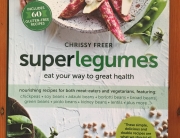 When I think of kale, I visualise a powerful and strong cancer fighting food. Kale is one of the most important foods for cancer prevention and it belongs in the Cabbage family. Other members of this family include broccoli, Brussel sprouts, cauliflower and cabbage. The two most prominent health benefits of eating these foods are that they can help prevent cancer and they are highly anti -inflammatory.
When I think of kale, I visualise a powerful and strong cancer fighting food. Kale is one of the most important foods for cancer prevention and it belongs in the Cabbage family. Other members of this family include broccoli, Brussel sprouts, cauliflower and cabbage. The two most prominent health benefits of eating these foods are that they can help prevent cancer and they are highly anti -inflammatory.
Research shows women who eat kale reduce their susceptibility to cancer at a variety of organ sites but especially the breast. This is due to the active compound glucosinolate which is converted into cancer fighting isothiocyanates. The researchers concluded that foods high in these compounds should be part of a cancer protective diet.
Recent researchers have looked into the role of isothiocyanates and inflammation. It appears that dietary sources of these powerful health promoting compounds such as kale can modify and actively inhibit a key step in inflammatory conditions such as arthritis, obesity and heart disease.
Kale in particular is high in vitamin A, vitamin C and vitamin K. If you eat 100 grams of kale you will be loaded with twice the RDI for vitamin A, 2 ½ times the RDI for vitamin C and a huge 10 times the RDI for vitamin K. Remember that vitamins A and C are wonderful antioxidants and keep us looking fabulous both on the inside and outside. Now that is an incredibly therapeutic food! Kale is a perfect detox food as it is high in substances that strongly promote the breakdown of toxins within the liver.
Kale is available from the middle of winter to early spring and look to buy the smaller varieties as they have a sweeter flavour than the larger ones. Before using make sure that you remove the inner white stalk as it is too tough and fibrous for eating. Blanch in hot salted water for 30 seconds to tenderise before using.
Kale is wonderful simply sautéed with garlic, onion and chilli as a side dish or finely chop and sauté with speck, chilli and garlic, add cannellini beans for a quick lunch.
Kale contains goitrogens which can affect your thyroid. If you have an underactive thyroid ensure you cook kale before eating so that you deactivate the enzymes responsible for their ability to adversely impact your thyroid.
The Environmental Working Group has listed kale 8th on its list of contaminated food in their most recent publication “Shoppers Guide to Pesticides”. Approximately 10 different pesticides were found on the average kale leaf so please ensure that you buy local organic kale only.
To help prevent cancer, reduce levels of inflammation and keep you looking gorgeous enjoy kale on a regular basis.














































































































































